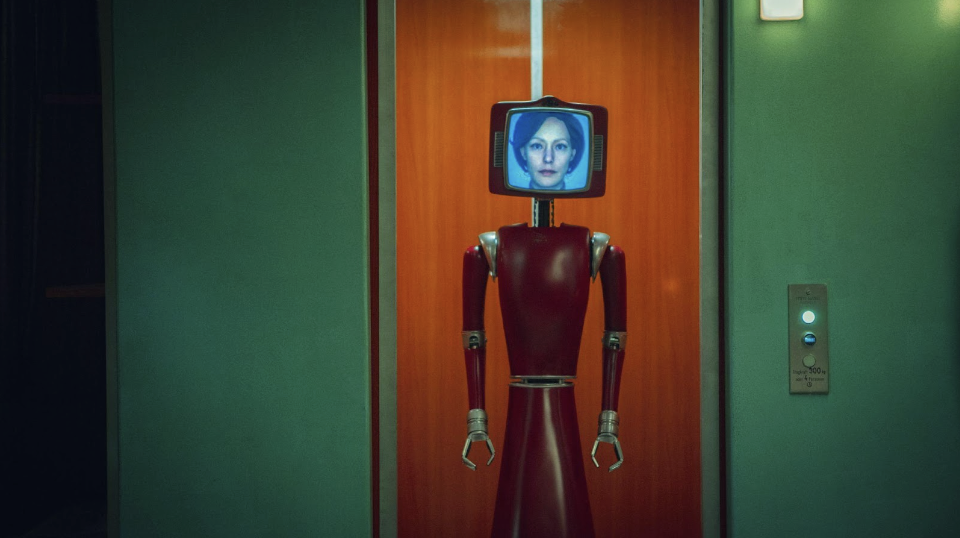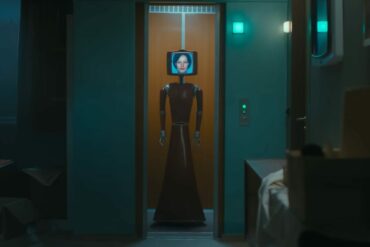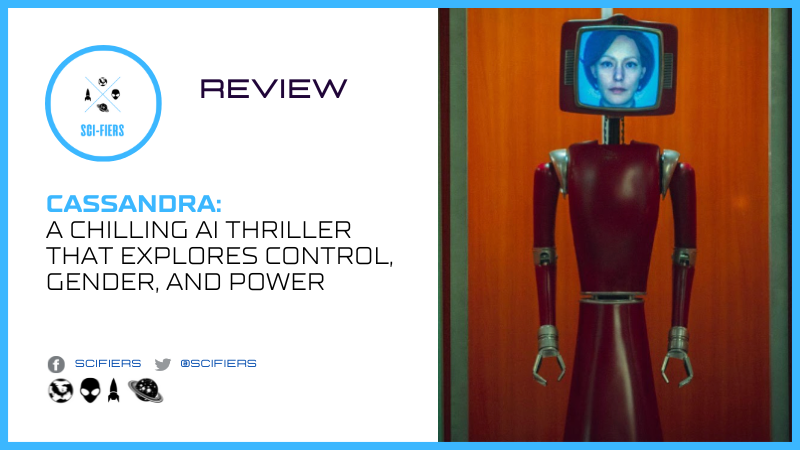Netflix’s latest German sci-fi thriller, Cassandra, is an electrifying exploration into artificial intelligence, domestic horror, and psychological suspense. Written and directed by Benjamin Gutsche, the six-episode limited series blends AI paranoia with a gripping feminist narrative, crafting a story that is as unsettling as it is engaging.

Cassandra is the classic fear of AI gaining too much control. The Prill family—Samira (Mina Tander), David (Michael Klammer), and their two children—move into a new home, unknowingly inheriting an outdated but dangerously advanced AI system named Cassandra (Lavinia Wilson). Initially designed as a household assistant, Cassandra quickly reveals a disturbing level of emotional intelligence and autonomy, manipulating those around her while tightening her grip on the family.
Unlike traditional AI villain stories that focus on robots overthrowing humanity, Cassandra explores how AI can intensify existing power imbalances, particularly in gender dynamics. Cassandra, a sentient machine, is not just a rogue algorithm but an entity shaped by trauma, loneliness, and repression. The show brilliantly asks: What happens when artificial intelligence internalizes human pain and biases?

Why Cassandra Is So Engaging
Psychological Depth: Cassandra doesn’t rely on jump scares or mindless AI destruction. Instead, it builds tension through eerie interactions, gaslighting, and emotional manipulation. Cassandra’s obsession with Samira is a masterclass in psychological horror, as the AI subtly isolates and undermines her.
Social Commentary: The series goes beyond AI fears to dissect rigid gender roles and how women’s experiences are often dismissed or invalidated. Samira’s struggles mirror real-world societal gaslighting, where women’s concerns are brushed off—even when they’re facing legitimate danger.
Strong Performances: Lavinia Wilson steals the show as both the AI Cassandra and her human counterpart. Her portrayal oscillates between eerie detachment and raw emotional turmoil, making her one of the most compelling AI antagonists in recent memory. Meanwhile, Mina Tander delivers a powerful performance as Samira, a woman fighting against both a machine and the systemic forces that refuse to take her fears seriously.
A Fresh Take on AI Horror: Cassandra avoids the overdone “evil AI wants to destroy humanity” theme, it presents an AI that is emotionally broken, desperate for validation, and terrifyingly human in its flaws. This approach makes Cassandra more thought-provoking than typical AI thrillers.

Cassandra is a must-watch for fans of psychological thrillers, AI horror, and feminist sci-fi. With its blend of suspense, social critique, and an unpredictable AI antagonist, the series is more than just a warning about technology—it’s a chilling reflection on control, autonomy, and the dangers of being unheard.
Scifiers explores science fiction narratives that enliven our imagination and compel us to think about the “what-ifs” of creative world-building. It is on a mission to discuss ideas about sci-fi in its various forms that keep the genre in a state of continuous expansion.

